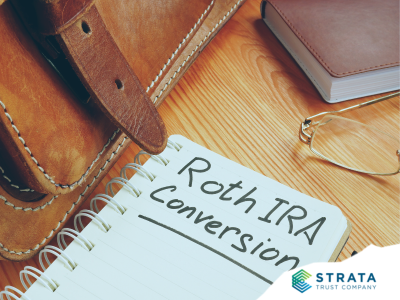Many self-directed IRA investors want exposure to assets outside of traditional stocks, bonds, and cash, which is why investments in alternatives are on the rise and expected to reach $17 trillion by 2025.1 Alternative assets can diversify portfolios and potentially increase returns. Since alternatives have a low correlation to traditional stocks and bonds, they can reduce the overall risk and volatility of a portfolio. And because individual alternatives can have long capital lock-up periods and more risk than traditional assets, such as higher credit or liquidity risk, they often provide higher returns.
Self-directed IRAs can be invested directly into alternative assets or through “liquid alts,” such as fund-of-fund mutual funds, Exchange Traded Funds (ETFs), Real Estate Investment Trusts (REITs), or Special Purpose Acquisition Companies (SPACs) that offer daily liquidity.
While there are many types of alternative assets, including private equity, venture capital, private debt, hedge funds, real estate, and commodities, here are three of the most popular for investing with self-directed IRAs:
 Private Equity
Private Equity
Private equity investments acquire or invest in private companies that are not listed on public stock exchanges and buying out public companies. While there are many styles of private equity investing, the most common ones include:
- Venture Capital – Invest in early-stage companies, including start-ups. These are high risk investments that often fail, which is why returns can be greater than traditional investments.
- Distressed Funding – Invest in troubled companies with underperforming business units or assets to turn them around and sell them for a profit.
- Leveraged Buyouts – As the most popular form of private equity funding, it uses a combination of debt and equity to purchase a company, improve the business, and resell it for a profit or by initial public offering (IPO).
Private equity investors should be aware that their money can be unavailable for long periods of time (e.g., 10 years) as they wait for the private equity fund to sell the holdings in an IPO or to a strategic buyer.
 Real Estate
Real Estate
Real estate investments take many forms, one being direct investments into rental properties like offices or apartment buildings. Investors can also make indirect investments through Real Estate Investment Trusts (REITs), Limited Liability Companies (LLCs), and Limited Partnerships (LPs).
Directly investing into or buying rental properties makes the IRA a landlord, which involves arranging for the mortgage, property taxes, and insurance to be paid, maintenance completed, tenants recruited, and problems to be handled. The benefit of such a strategy is that investors can create dependable and long-term income streams.
An alternative to being a landlord is flipping, where the investor buys properties using IRA assets and quickly resells them for a one-time profit for the IRA. Another option is buying property through a real estate investment group, which is a company that buys or builds buildings and operates as the landlord in exchange for a portion of the monthly rents.
Real estate limited partnerships are like real estate investment groups, but instead of buying into a company, a general partner develops and manages the project for a group of limited partner investors. Limited partners may receive periodic distributions of rental income, as well as a large return (hopefully) when the properties are sold.
Indirect investing can be done through REITs or mutual funds. REITs use investors’ money to purchase, operate, and sell income-producing properties. Publicly traded REITs are listed on exchanges, just like stocks and ETFs. REITs must pay out 90% of their taxable profits in the form of dividends, which avoids taxes and enhances returns. REITs are highly liquid, provide regular income, and offer the opportunity for capital appreciation.
 Private Debt
Private Debt
Private debt is similar to a bank loan to a business, but without the regulatory constraints of banks. Bank loans tend to have lower fees and interest rates than private lenders, which is why private debt investors can potentially get higher yields. Private debt includes:
- Venture Debt – Private lenders invest in high risk, high return start-up companies.
- Infrastructure Debt – Capital-intensive projects are lent capital in return for higher yields.
- Real Estate Debt – Investors fund real estate developments and acquisitions.
- Private Debt Funds – Investors pool money to fund large-scale projects.
- Private Debt Funds (Mortgage Focus) – Investors primarily invest in the development or purchase of residential and commercial real estate.
Private debt investors can achieve high returns, typically 4 – 6% above bank rates, as well as good cash flow from fixed interest and principal payments. In addition, investors can expect to see increased diversification due to bond volatility with equity-like returns.
Investments tend to be illiquid since private loans have longer terms than public markets. Private debt investing can also be risky since it often invests in new companies or those under financial stress, but it also generally sits higher on the payout structure in case of default, which mitigates some risk.
Start Directing Your Future
Alternative assets continue to grow in popularity and can be sound investment strategies for investors looking for higher-risk investments that can diversify portfolios and potentially produce higher returns than traditional stock and bond investments. As an IRA custodian, STRATA custodies a wide array of traditional, nontraditional and alternative investment options not found in conventional IRAs. An in-depth look at SDIRA investment options can be found on our Investment Options page.
For questions about alternative investments, or if you’re ready to start investing, contact our self-directed IRA experts.
References
1 Preqin, “Alternative Assets to Hit More than $17tn in AUM by 2025,” Press Release, November 9, 2020














